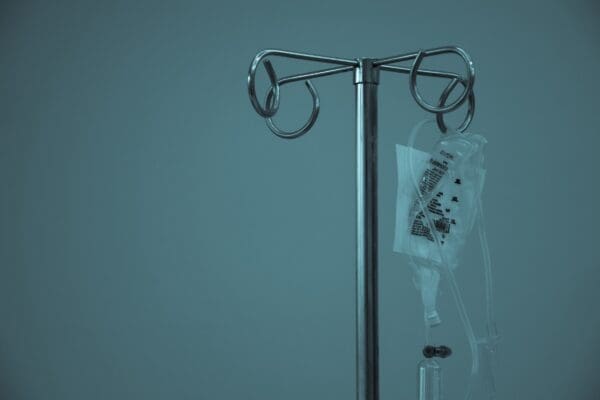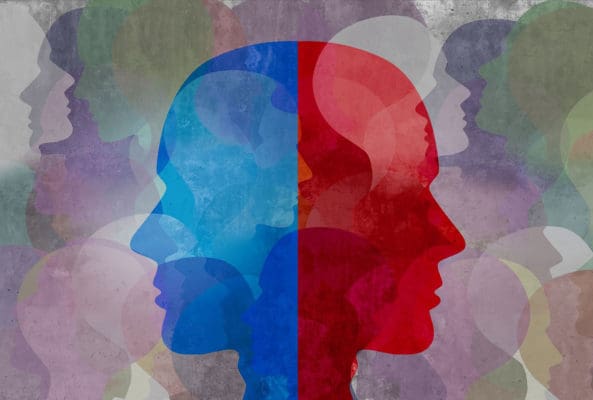Medical Editor: Dr. David Cox, PhD, ABPP
We all have been impacted by trauma in our lives. Whether from a car accident or assault, military service, witnessing violence at work, or even while watching the morning news during a fateful event. When we’re exposed to these experiences over and over again through the course of our daily life, it can start to take a deeper toll on our health.
Researchers are currently working on innovative therapies that utilize the unique impacts of psychedelics to help patients re-write their relationship with their trauma and their PTSD diagnosis. As indicated by the recent advancement of MDMA in the treatment of PTSD, psychedelic therapies might prove to be helpful in addressing the often debilitating symptoms of PTSD. Psilocybin, the psychoactive compound common to magic mushrooms, may one day demonstrate similar impacts. Read on to learn more about how magic mushrooms might help with symptoms of trauma and PTSD.
PTSD, Trauma, and Psychedelic Research
Trauma impacts both our mental and physical health. For people with chronic Post Traumatic Stress Disorder (PTSD) resulting from early childhood trauma, the risk of developing chronic physical health conditions, such as heart disease and even cancer, is increased. The link between childhood trauma and physical illness is indicated in the Adverse Childhood Experiences (ACE) longitudinal study. So too is the risk of problems related to the social impacts of trauma, such as incarceration, homelessness, and substance abuse.
The same goes for people with PTSD resulting from adult trauma — especially those who repeatedly witness violence in the course of daily life. First responders, frontline healthcare workers, and even social workers can be frequently exposed to intense and violent situations through the course of their profession. People who experience trauma in the workplace have a higher likelihood of developing depression and other stress-related disorders.
PTSD Symptoms and Magic Mushrooms
There are many kinds of trauma; physical trauma is obvious, but emotional and spiritual trauma also exist. And in this regard, magic mushrooms might offer a unique benefit for some.
Getting to the root of trauma and learning new behaviors or narratives about our past experiences could help transform our relationship with ourselves. By redefining the past, the present doesn’t get caught up in the symptomology of PTSD, which can include anxiety, hypervigilance, recurring nightmares, panic attacks.
For many, the constant state of stress-induced by PTSD symptoms can have further impacts on the body’s functions, flooding the body with stress hormones like adrenaline and cortisol, and contributing to physical, often called “somatic” pains as well. This exposure to stress-related hormones can also cause a deficit in empathy and creative thinking as well, mindstates that could potentially benefit from the neuroplasticity catalyzed by psilocybin-induced mindstates.
Psychedelics may be an effective way to help people heal from these kinds of deep-rooted trauma. The internet is filled with stories of people who use magic mushrooms to self-treat PTSD because conventional mental health medications and therapies have not effectively addressed their symptoms.
From microdosing to ceremonial or supervised use, some people are looking for ways to heal from trauma using magic mushrooms. But, do keep in mind that when clinical studies refer to the use of psilocybin, they are using an isolated psychoactive molecule, not psychedelic mushrooms as a whole.
Magic mushrooms contain many other compounds that impact the trip and are more unpredictable. For some people, receiving psilocybin therapy in a controlled setting with a clinical psychedelic therapist may be preferred. But for others, magic mushrooms taken in a naturalistic setting with an experienced guide are a preferable form of healing. Both are known to be effective in terms of anecdotal stories, but only psilocybin has been studied in clinical trials — though not explicitly for PTSD.
Trauma Symptoms and Bipolar Disorder
The symptoms of trauma are often similar to those of bipolar disorder, and there may be a link between childhood trauma and bipolar disorder. Many people who have been diagnosed with bipolar disorder also suffer from PTSD or other anxiety disorders. But unfortunately, bipolar disorder is often an exclusionary criterion in research trials and psychedelic therapy.
Bipolar disorder is a condition that causes individuals to experience extremes in mood, often between states of mania and depression. Mania is a state of increased energy to the point of needing little to no sleep, abnormal excitement or euphoria, irritability, racing thoughts, delusions of grandeur (elevated self-esteem), and impulsivity with little regard for consequences.
Bipolar disorder is poorly understood, but researchers believe that it occurs when the brain is not producing enough of the mood-stabilizing neurotransmitter serotonin. It is a lifelong condition that may be related to traumatic experiences from childhood. It is typically treated with medication and psychotherapy, though some people report that they have successfully replaced their medication with both psilocybin macro and microdosing, and researchers at the UCSF Bonding and Attunement in Neuropsychiatric Disorder (BAND) lab are beginning to take notice.
Waiting for Psilocybin and PTSD Research
We do not have any clinical research directly investigating the impacts of psilocybin or magic mushrooms on PTSD symptoms — yet. But, we do have some related studies around depression that might offer some insight as this field of research opens.
A study published in the Journal of Psychopharmacology found that psilocybin may catalyze emotional responsiveness in patients experiencing treatment-resistant depression. The study found that the benefits of psilocybin were not just temporary but could be long-lasting and even increase over time for some people.
And while PTSD is not “the end,” it can often feel like it is. The mind almost gets stuck in a virtual reality experience it cannot unplug from, coupled with the body believing the reality that the mind is fixated on. This releases a constant stream of stress hormones to the point that major brain structures like the hippocampus begin to change. Psilocybin can help interrupt the loop long enough to reconfigure negative cognitive biases developed from traumatic experiences.
Compounded over a lifetime, PTSD can become a developmental disorder. When a person experiences long periods of trauma, such as childhood abuse, racial trauma, or other long-term abusive relationships, a condition sometimes referred to as Complex PTSD can develop. This condition is more challenging to treat with traditional pharmaceutical therapy. Many people with PTSD who do not respond to standard treatment may one day find healing through psilocybin-assisted therapy.









